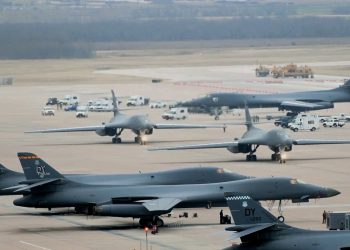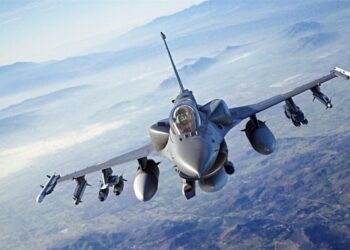,
Bangalore (AFP): India's biggest air show has set the clock ticking for the subcontinent's richest military contract: an order for 126 fighter planes potentially worth nine billion dollars. Five contenders scrambled to press their case at the event ending Sunday, showing off the capabilities of their machines and enlisting the support of their governments before India formally invites bids for the deal.
US giants Lockheed Martin and Boeing are in the race with the Russian Aircraft Corp., France's Dassault Aviation, Sweden's Saab and the Eurofighter consortium.
Each wants to clinch what a Boeing official said would be the world's biggest fighter plane contract in 15 years.
This is the first time India will buy combat aircraft after evaluating rival bids through a global tender.
In the past, it negotiated such purchases directly with Russia, the source of 70 percent of its military hardware, and other suppliers.
“It's a different market now,” Aleksey Federov, a senior Russian Aircraft Corp. executive, told AFP in Bangalore. “But we still hope that we'll keep our position in India.”
India, the biggest arms purchaser among emerging nations and once a virtually captive defence-equipment market for the former Soviet Union and its successor-state, Russia, is trying to diversify military suppliers.
“The tender will be hard to win,” Federov conceded. “For us it will be a serious trial of our ability to compete in an open forum” for a deal from India.
The Russian-built MiG-35 and MiG-29 are vying with Lockheed's F-16, Boeing's F-18, Eurofighter's Typhoon, Saab's Gripen and Dassault's Rafale for the contract, key to an Indian effort to boost its military's firepower.
The sixth Bangalore air show, which brought together some 500 companies from overseas and India, served as a last-chance platform for the manufacturers to demonstrate what they have to offer in the run-up to India's invitation for bids.
“This is a huge thing,” said Eurofighter Chief Executive Officer Aloysius Rauen. “The competition is going to be hard; we'll do our utmost to get it.”
Lockheed and Boeing enlisted Indian corporate chieftain Ratan Tata, 69, to fly their planes at the air show. Tata, a trained pilot riding high after making a winning seven-billion-pound bid for European steelmaker Corus last month, took no sides.
“It will be an absolutely critical competition,” said Mark Kronenberg, the vice president for international business in the Asia-Pacific at Boeing Integrated Defense Systems. “It will be fierce, the biggest competition ever seen over the last 15 years.'
Boeing offered F-18 plane rides to two journalists and 16 air force officers, a spokesman said.
The US companies are trying to ride a tide of warming relations between India and the United States to win military orders.
The two countries signed of a landmark deal last year that will allow India access to US civil nuclear technology, barred since the country exploded its first nuclear bomb in 1974.
Lockheed sweetened its pitch for the F-16, 4,300 of which have been sold so far, by offering to sell India a range of additional equipment, from the “hit-to-kill” PAC-3 missile to the giant airlifter Super Hercules.
The offer can play “an important role in the growing strategic relationship between India and the United States,” said Royce Caplinger, the vice president of Lockheed Martin's office in India.
Dassault will make an unsolicited offer to the Indian government to sell 40 Rafales, independent of the contract for 126 planes, said spokesman Yves Robins. One Rafale costs 50 million euros (65 million dollars).
For India, the deal is key to an effort to modernize its armed forces in step with its surging economy, expanding at an annual pace of nine percent, and to increase its international clout.
The country's fleet of Russian-built MiG-21s is ageing, and its indigenous light combat aircraft program is still not up to scale, some analysts said.
“We have to find a replacement soon for the MiG-21, which is being phased out,” B.K. Pandey, a former air marshal in the Indian Air Force, said in Bangalore.
“The lobbying is understandable because the companies know a tender will be coming anytime,” he added.
Defence Minister A.K. Antony said in Bangalore that the government is putting the final touches on the so-called “Request for Proposals”.
The document will specify India's requirements and seek bids from potential suppliers. A tender will be floated “at the earliest”, according to the minister.









